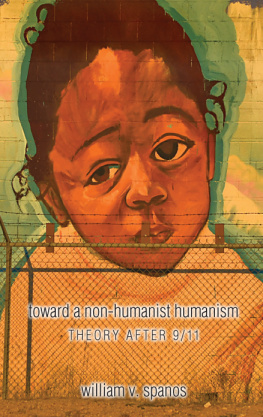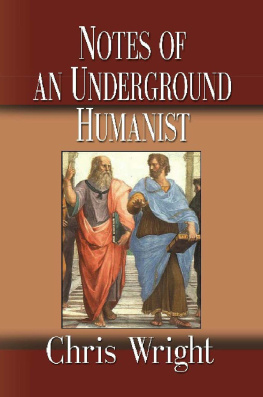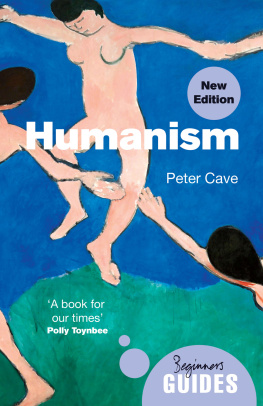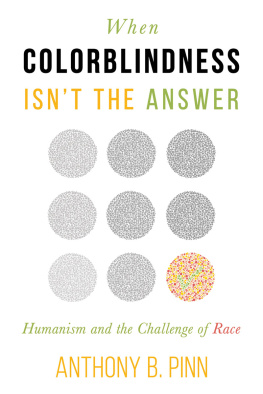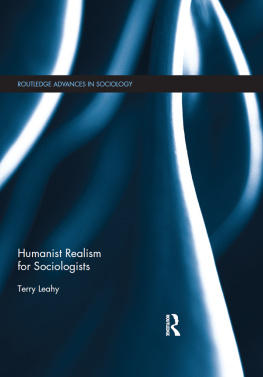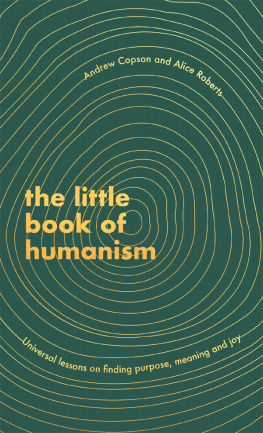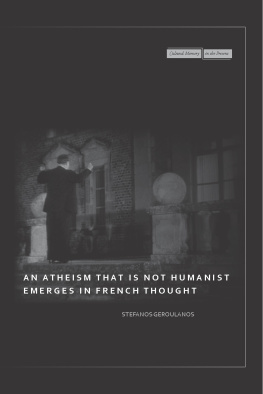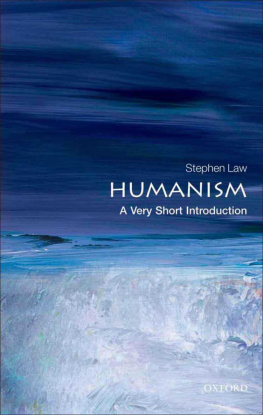Spanos - Toward a non-humanist humanism theory after 9/11
Here you can read online Spanos - Toward a non-humanist humanism theory after 9/11 full text of the book (entire story) in english for free. Download pdf and epub, get meaning, cover and reviews about this ebook. City: Albany, year: 2017, publisher: State University of New York Press, genre: Religion. Description of the work, (preface) as well as reviews are available. Best literature library LitArk.com created for fans of good reading and offers a wide selection of genres:
Romance novel
Science fiction
Adventure
Detective
Science
History
Home and family
Prose
Art
Politics
Computer
Non-fiction
Religion
Business
Children
Humor
Choose a favorite category and find really read worthwhile books. Enjoy immersion in the world of imagination, feel the emotions of the characters or learn something new for yourself, make an fascinating discovery.
Toward a non-humanist humanism theory after 9/11: summary, description and annotation
We offer to read an annotation, description, summary or preface (depends on what the author of the book "Toward a non-humanist humanism theory after 9/11" wrote himself). If you haven't found the necessary information about the book — write in the comments, we will try to find it.
Spanos: author's other books
Who wrote Toward a non-humanist humanism theory after 9/11? Find out the surname, the name of the author of the book and a list of all author's works by series.
Toward a non-humanist humanism theory after 9/11 — read online for free the complete book (whole text) full work
Below is the text of the book, divided by pages. System saving the place of the last page read, allows you to conveniently read the book "Toward a non-humanist humanism theory after 9/11" online for free, without having to search again every time where you left off. Put a bookmark, and you can go to the page where you finished reading at any time.
Font size:
Interval:
Bookmark:

THEORY AFTER 9/11
william v. spanos

On the cover: A photograph by Geof Gould, Native Child Behind a Barbed Wire Fence: Hoping for a Home. Courtesy of Geof Gould.
Published by State University of New York Press, Albany
2017 State University of New York
All rights reserved
Printed in the United States of America
No part of this book may be used or reproduced in any manner whatsoever without written permission. No part of this book may be stored in a retrieval system or transmitted in any form or by any means including electronic, electrostatic, magnetic tape, mechanical, photocopying, recording, or otherwise without the prior permission in writing of the publisher.
For information, contact State University of New York Press, Albany, NY
www.sunypress.edu
Production, Dana Foote
Marketing, Fran Keneston
Library of Congress Cataloging-in-Publication Data
Names: Spanos, William V., author.
Title: Toward a non-humanist humanism : theory after 9/11 / by William V. Spanos.
Description: Albany : State University of New York Press, [2017] | Includes bibliographical references and index.
Identifiers: LCCN 2016039675 (print) | LCCN 2017010140 (ebook) | ISBN 9781438465975 (hardcover : alk. paper) | ISBN 9781438465968 (pbk. : alk. paper) | ISBN 9781438465982 (ebook)
Subjects: LCSH: Humanism21st century. | Civilization, Modern21st century.
Classification: LCC B821 .S73 2017 (print) | LCC B821 (ebook) | DDC 144dc23
LC record available at https://lccn.loc.gov/2016039675
10 9 8 7 6 5 4 3 2 1
To all those uncountable humans who died during the Allied firebombing of Dresden in February 1945, which, for me, became a neighborhood of zero, in the hope that these untimely meditations might contribute to a coming non-humanist humanity.
Preface
T he following meditation attempting to articulate a coming non-humanist humanism was completed shortly before the election of Donald Trump to the presidency of the United States. They thus might be read as academic exercises remote from the ominous realities of the present fraught political occasion. But on reading the final proofs during the election period in November 2016, I was struck by the uncanny anticipation of the disturbing advent of the Trump phenomenonthe latest and perhaps finalliminalmanifestation of the dehumanizing binary logic of the exceptionalist American nation-statein each one of these chapters. Particularly pertinent in this respect are the pervasive themes, on the one hand, of American exceptionalism and the state of exception intrinsic to it, and, on the other, of the dehumanizing degradation of languagethe banality of evil Hannah Arendt attributed to Adolph Eichmann at his trial in Jerusalemand the intrinsically related theme, articulated by Giorgio Agamben, of bare life, life that can be killed without the killing being called murder. Listening to Donald Trumps glib pronouncements during the Republican debates and his debates with Hillary Clinton, I was struck by the uncanny similarity between Trumps dehumanized and dehumanizing discourse and that ominous banality of modernity identified by my main intellectual witnessesEdward Said, Hannah Arendt, Giorgio Agamben, Alain Badiou, Jacques Rancire, and Judith Butler, among othersas that which threatens the very humanity of human life in the post-9/11 era. I hope the reader will keep this implicit relationship between my diagnosis of the contemporary American political scene and the banality of Trumps vision, in the name of making America great again, of the United States future under his leadership in mind as he or she reads the following errant meditations on the interregnum in which we precariously dwell.
Acknowledgments
T he difficult question of what it means to be human has been an urgent obsession of mine ever since my mind-shattering experience as a young prisoner of war in Dresden, Germany, in World War II, when, to appropriate an indispensable recent vocabulary, I lived five excruciatingly long and agonizing empty months of my adolescence in the limbo of bare life: life utterly bereft of the potential that makes human life worth living, and thus life that was disposable. At first, I was enabled by my American heritage to maintain that saving sense of human potential by attributing my dehumanized condition to the monstrous Nazi totalitarian aberration. But in the wake of the horrific Allied firebombing of Dresden in February 1945, which indiscriminately killed over a hundred thousand children, women, and men in one long night-and-day terrorist incendiary air raid, the Nazi prop failed as a sustaining rationale. From that epiphanic occasion, which bereaved me of any reason to be, to the very present moment of this writing, I have relentlessly and increasingly tried in my capacity as teacher, scholar, and editor to fathom what it is in the benign apparatuses of our (Western) civilizationso celebratory of its redemptive accomplishments in the name of humanitythat could reduce human life to bare life, and to rethink the question of the human in such a way as to avoid that relentlessly advancing dehumanizing banal fate. The following indissolubly related essaysI deliberately call them variations on a theme to contrast them with the now outmoded concept of the bookconstitute the culmination of this long, sustained, and arduous untimely endeavor inaugurated in the abyssal midst of the smoldering ashes of the Florence of the Elbe. In acknowledgment of their clamoring silent voices, I dedicate these meditations on the human to that multitude of human singularities who, having been reduced to ungrievable bare life in the name of the traditional humanism of the free world, were killed with thoughtless impunity. For me, on that revelatory occasion of my youth, these dead and mutilated bodies became a neighborhood of zero, that, in its unspeakable horror, called a future humanitya non-human humanist humanityto redeem their banalized wasted lives.
More immediately, I wish to acknowledge my debt to a number of friends and colleagues who, through the years of my abiding concern with the question of the human, engaged me in loving dialogical strife. These include the late Edward W. Said, whose criticism of my ontological focus enabled me to perceive the idea of the human as an indissoluble relationship between the ontological and the worldly or political sites on the continuum of being; and some members of the boundary 2 editorial collectivePaul Bov, Ronald Judy, Aamir Mufti, Stathis Gourgouris, Marcia Landy, Michael Hays, and the late Kathryn Lindbergwhose resistance to the radically profane direction my critique of the traditional humanist ethos was taking always compelled me to rethinkbut never to abandonmy perspective. Above all, I want to thank Daniel T. OHara and Donald E. Pease, who, despite their differing interpretation of the ineffable human condition, unfailingly, through the years, have encouraged my obsessive effort to think the humanness of the stinking bare life I threw into the horse-drawn wagons that blithely trotted their cargoes off to mass burial at the outskirts of the devastated city of Dresden.
I also wish to thank a number of my students both from the distant pastAliki Bakopoulou Halls, R. Radhakrishnan, Jeanette McVicker, Giovanna Covi, Michael Clark, David Randall, Patrick McHugh, Philip Armstrong, Madeleine Sorapure, Deborah Reiter, and Robert Marzecand the near present: Ayse Deniz, Christina Battista, Guy Risko, Jennifer Sweeney, Robert Wilson, Shawn Jasinski, Molly Goldblatt, Robert Ryan, James Fitzgerald, Marcus Heiligenthal, and, not least, my present research assistant, Mahmoud Zidan. All these, to me, young people have constituted contrapuntal voices that compelled my thinking to remain errantly open-ended in defiance of the cultural pressures that demand the acquiescencethe closureof old age. The inquiring voices of these young students enabled me in my old age to write this testament of resistance in behalf of a coming non-humanist humanism. They, at least, will hear what I mean.
Font size:
Interval:
Bookmark:
Similar books «Toward a non-humanist humanism theory after 9/11»
Look at similar books to Toward a non-humanist humanism theory after 9/11. We have selected literature similar in name and meaning in the hope of providing readers with more options to find new, interesting, not yet read works.
Discussion, reviews of the book Toward a non-humanist humanism theory after 9/11 and just readers' own opinions. Leave your comments, write what you think about the work, its meaning or the main characters. Specify what exactly you liked and what you didn't like, and why you think so.

